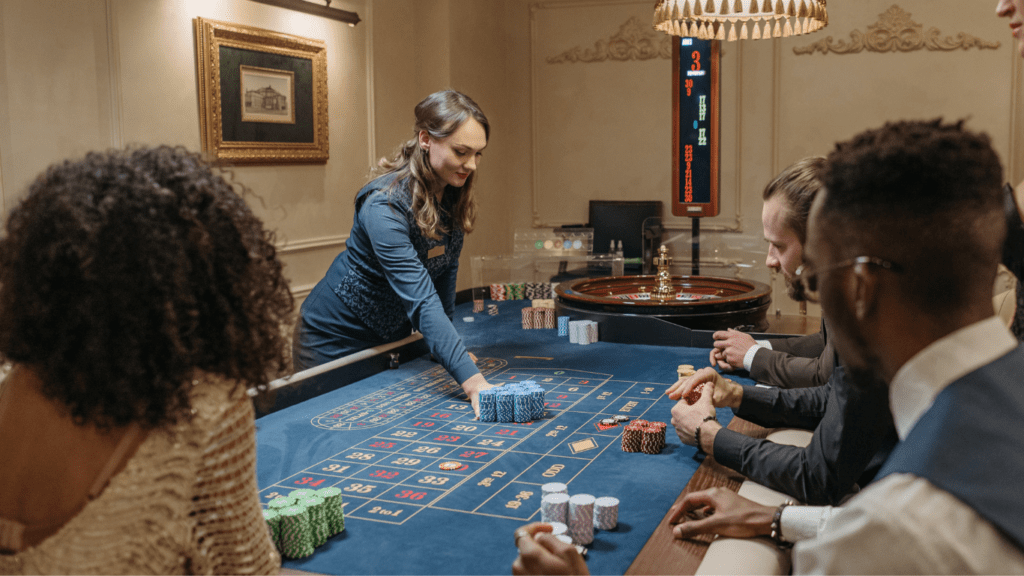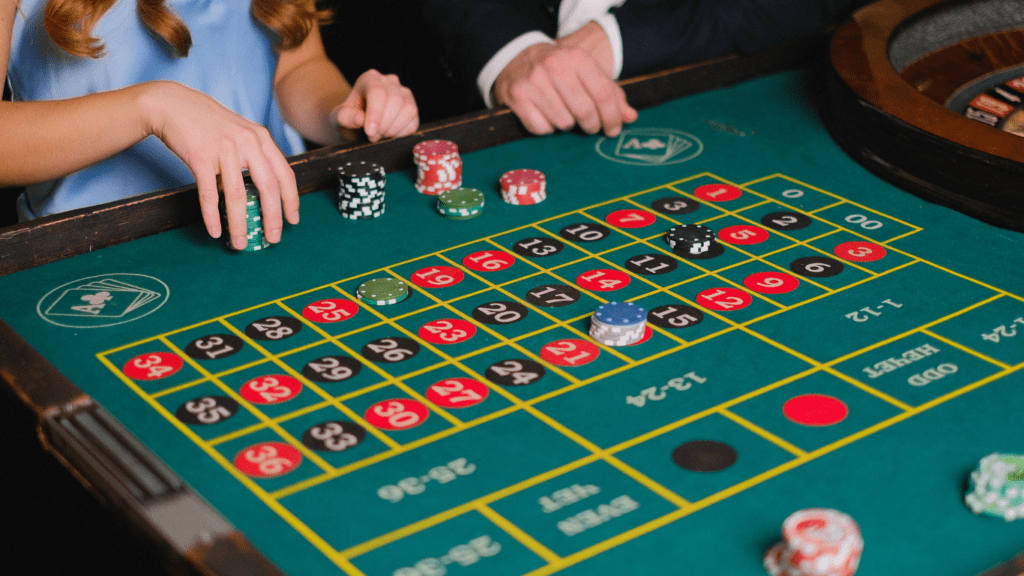The Importance of Staying in Control
Staying in control is crucial for managing gambling habits. Without control, gambling can quickly become problematic, affecting finances, relationships, and mental health. Recognizing the impact of losing control helps maintain balance and prevents negative consequences.
Understanding personal limits sets a foundation for responsible gambling. I always set time and budget limits before engaging in any gambling activity. Consistently sticking to these limits ensures that gambling remains a form of entertainment, not a source of stress or addiction.
Monitoring emotional triggers is essential. I notice that certain feelings or situations, like boredom or stress, increase my urge to gamble. By identifying these emotional triggers, I can develop healthier coping strategies.
Seeking support is another critical aspect. Having someone to talk to, whether it’s a friend, family member, or professional, provides a safety net. They can offer perspective and help reinforce boundaries when it’s challenging to stay in control.
Using tools and resources aids in maintaining control. Many gambling platforms offer self-exclusion options and limit-setting features. I utilize these tools to ensure my gambling remains within the boundaries I’ve set.
Tracking gambling activities provides insight into patterns and behaviors. By keeping a record, I can identify trends and areas where I need to exercise more control. Awareness of these patterns aids in making informed decisions about future gambling.
Adopting a balanced lifestyle reduces reliance on gambling for entertainment or stress relief. I engage in various activities like:
- exercise
- hobbies
- social events
which naturally diminishes the need to gamble as a primary source of enjoyment.
Common Gambling Triggers
Understanding common gambling triggers is essential for maintaining control and preventing excessive behavior. Below are some of the most common triggers that can lead to gambling.
Emotional Triggers
Emotional triggers like stress, anxiety, and depression can prompt gambling as a coping mechanism. For instance, people often gamble to escape negative emotions, seeking temporary relief. To manage this, it’s crucial to develop healthy emotional regulation strategies. Techniques such as mindfulness, exercise, and therapy help maintain balance and reduce reliance on gambling.
Environmental Triggers
Environmental triggers include physical locations and sensory experiences that encourage gambling behaviors. For example, flashing lights and sounds in a casino environment or advertisements for betting websites can stimulate the urge to gamble. Identify these triggers and avoid or alter exposure to them. By creating environments free from gambling stimuli, it’s easier to stay in control.
Social Triggers
Social triggers involve interactions with other individuals that encourage gambling. Peer pressure or social gatherings where betting is normalized can prompt someone to partake in gambling activities. Recognize these influences and set boundaries in social settings. Opt for gatherings that don’t include gambling, or cultivate friendships that support a gambling-free lifestyle.
Strategies to Identify Your Triggers

Recognizing gambling triggers is crucial to maintaining control. Here’s how to identify them effectively.
Self-Reflection Techniques
Start with self-reflection techniques to understand personal gambling triggers. Maintain a journal to log emotions, events, and thoughts when feeling the urge to gamble. Reviewing these entries helps identify patterns and recurrent situations. Practice mindfulness meditation to become more aware of emotional and physical states. Mindfulness enhances the ability to notice triggers before acting on them. Ask trusted friends or family members for observations about behaviors tied to gambling urges. Their insights can provide valuable perspectives.
Seeking Professional Help
Consider seeking professional help for additional support in identifying triggers. Therapists can offer cognitive-behavioral therapy (CBT) which focuses on changing negative thought patterns. Counselors specialized in addiction can provide coping strategies tailored to individual needs. Support groups like Gamblers Anonymous offer shared experiences and strategies from individuals facing similar challenges. Medical professionals can evaluate if underlying issues such as mental health conditions contribute to gambling triggers. Medications or therapies to address these conditions can indirectly reduce gambling propensity.
Effective Coping Mechanisms
Understanding and addressing gambling triggers is crucial. Using effective coping mechanisms helps maintain control and avoid problematic behavior.
Healthy Alternatives
Engaging in healthy alternatives can significantly reduce the urge to gamble. Exercise boosts endorphin levels, improving mood and reducing stress. Activities like running and yoga can distract from gambling thoughts. Creative hobbies such as painting, writing, or playing an instrument occupy the mind and provide a productive outlet for emotions. Socializing with friends and family provides essential emotional support and helps focus on meaningful relationships instead of gambling.
Building a Support System
A strong support system offers invaluable assistance during challenging times. Communicating openly with trusted individuals about gambling struggles can foster understanding and accountability. Support groups like Gamblers Anonymous provide a community of individuals with similar experiences, offering advice and emotional support. Seeking professional advice from counselors or therapists specializing in gambling addiction helps develop personalized strategies to combat triggers and reinforce self-control.
Maintaining Long-Term Control
Maintaining long-term control over gambling habits demands consistency and mindfulness. Understanding personal triggers aids in sustaining a balanced approach.
Regular Self-Assessment
- Regular self-assessment helps monitor and manage gambling behaviors.
- Reflecting on past gambling episodes, including emotional states, contexts, and outcomes, reveals patterns. This reflection enables me to develop strategies to avoid or manage triggers.
- Keeping a journal tracks progress and identifies areas needing improvement.
- Documenting thoughts and feelings related to gambling offers insights into habits and emotional triggers.
- Regularly reviewing and updating this journal ensures continuous self-awareness and growth.
Continuous Learning and Adaptation
Continuous learning and adaptation are crucial for managing gambling triggers. This involves staying informed about gambling addiction research and techniques. Reading articles, joining forums, and attending workshops can offer new strategies. Engaging with support groups or a therapist ensures access to updated therapeutic methods. Adapting new coping mechanisms in light of personal experiences increases resilience. Incorporating diverse techniques keeps the approach dynamic and effective. Leveraging these resources and continually adapting ensures sustained control over gambling behaviors.



 Earlee Nelsonallers – Founder
Earlee Nelsonallers is the visionary founder of Smart Gamble Land, bringing over two decades of experience in the gambling industry. Passionate about strategy and innovation, Earlee has made it his mission to provide gamblers with advanced insights into winning techniques, effective betting systems, and casino game mastery. His deep understanding of gambling psychology has been the driving force behind the platform's success, making Smart Gamble Land a go-to resource for players seeking an edge. Earlee's dedication to educating and empowering gamblers sets the foundation for the platform's authoritative content.
Earlee Nelsonallers – Founder
Earlee Nelsonallers is the visionary founder of Smart Gamble Land, bringing over two decades of experience in the gambling industry. Passionate about strategy and innovation, Earlee has made it his mission to provide gamblers with advanced insights into winning techniques, effective betting systems, and casino game mastery. His deep understanding of gambling psychology has been the driving force behind the platform's success, making Smart Gamble Land a go-to resource for players seeking an edge. Earlee's dedication to educating and empowering gamblers sets the foundation for the platform's authoritative content.
